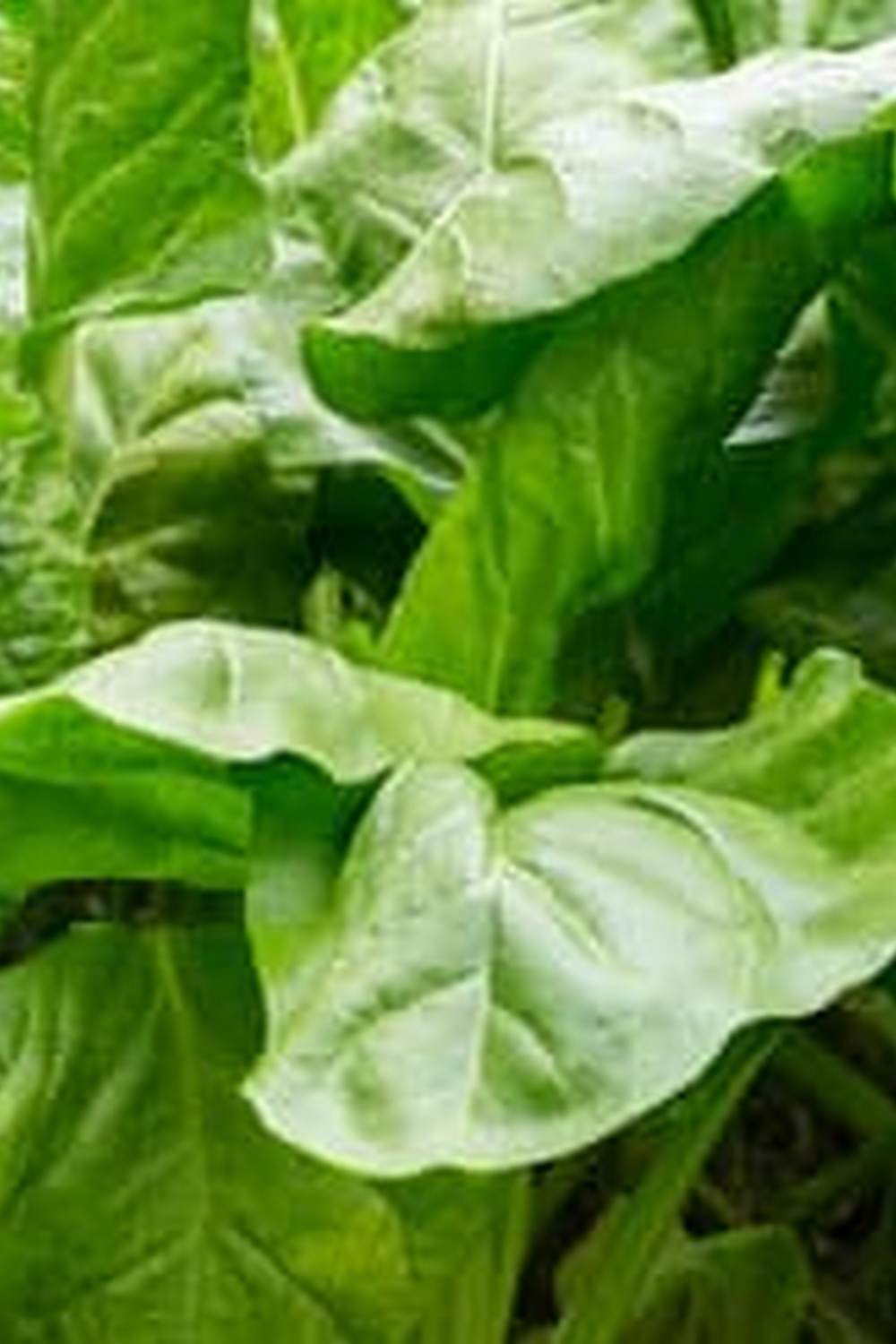Compost is an essential element in maintaining healthy and thriving vegetable gardens. Finding the best compost to use for vegetable gardens is crucial for promoting soil fertility, enhancing plant growth, and ultimately yielding a bountiful harvest. In this article, we will explore the significance of compost in vegetable gardens and provide valuable insights into choosing the most suitable compost for your gardening needs.
Compost serves as a powerful natural fertilizer that provides essential nutrients to the soil, promoting overall soil health and supporting the growth of vegetables. Understanding the different types of compost, such as organic and inorganic options, is critical in determining which type would best suit your vegetable garden. Factors to consider when selecting the best compost for your gardening efforts will also be discussed, providing guidance on making informed choices.
Furthermore, we will delve into a detailed comparison of the top 5 best composts for vegetable gardens, offering valuable information on their composition, nutrient content, and effectiveness. Additionally, we will provide a step-by-step guide on how to make your own compost specifically tailored for vegetable gardens, along with dos and don’ts for using compost effectively. Stay tuned to discover the numerous benefits of using compost in vegetable gardens and gain valuable insights into optimizing your gardening experience.
Understanding the Different Types of Compost
When it comes to choosing the best compost for your vegetable garden, it’s important to understand the different types available. One of the main distinctions is between organic and inorganic compost. Organic compost is made from plant or animal materials, such as kitchen scraps, yard waste, and manure. On the other hand, inorganic compost is usually made from non-living materials like peat moss or vermiculite.
Organic compost is often preferred for vegetable gardens because it adds valuable nutrients to the soil and improves its structure. Inorganic compost, while still beneficial for soil aeration and water retention, may not provide the same level of nutrients that organic compost does. Additionally, organic compost is more environmentally friendly as it reduces waste going into landfills.
Another factor to consider when choosing between organic and inorganic compost is the long-term impact on soil health. Organic compost fosters beneficial microbial activity in the soil, which can lead to better plant growth and overall productivity in your vegetable garden. Inorganic compost may not have the same impact on soil biology.
Here are some examples of popular organic compost options for vegetable gardens: manure-based compost, mushroom compost, and homemade kitchen scrap compost. While these all share the benefits of providing essential nutrients for plant growth, they each have unique qualities that may make them more suitable for specific types of vegetables or gardening preferences.
| Compost Type | Main Characteristics |
|---|---|
| Manure-based Compost | Rich in nitrogen; helps improve soil fertility |
| Mushroom Compost | High in organic matter; aids in moisture retention |
| Homemade Kitchen Scrap Compost | Sustainable option; utilizes household waste effectively |
Factors to Consider When Choosing the Best Compost for Your Vegetable Garden
When choosing the best compost for your vegetable garden, there are several important factors to consider. It’s not just about picking any compost off the shelf – you need to ensure that it will provide the necessary nutrients for your vegetables and improve the overall health of your soil.
Organic vs. Inorganic Compost
One of the first factors to consider is whether you want to use organic or inorganic compost. Organic compost is made from natural materials such as kitchen scraps, yard waste, and manure, while inorganic compost is typically made from synthetic materials. Organic compost is generally preferred for vegetable gardens as it adds essential nutrients and beneficial microorganisms to the soil.
Nutrient Content
Another important factor to consider when choosing the best compost for your vegetable garden is its nutrient content. Different vegetables have varying nutrient requirements, so it’s important to select a compost that provides a good balance of nitrogen, phosphorus, potassium, and other essential nutrients. Look for compost with a diverse mixture of organic matter to ensure a well-rounded nutrient profile for your vegetables.
Potential Contaminants
It’s also crucial to consider potential contaminants in the compost you choose for your vegetable garden. Some compost may contain high levels of heavy metals or harmful chemicals if it’s made from contaminated materials. Be sure to research the source of the compost and look for products that have been certified as safe for organic gardening to avoid any potential harm to your plants or yourself.
Considering these factors when selecting the best compost for your vegetable garden will help ensure a healthy and productive growing environment for your vegetables.
Top 5 Best Composts for Vegetable Gardens
When it comes to choosing the best compost to use for vegetable gardens, there are several options available in the market. Each type of compost has its own set of benefits and drawbacks, so it’s important to understand the differences before making a decision. In this section, we will compare the top 5 best composts for vegetable gardens to help you make an informed choice.
One of the most popular choices for vegetable garden compost is homemade organic compost. This type of compost is made from natural ingredients such as kitchen scraps, yard waste, and other organic materials. It is rich in essential nutrients and beneficial microorganisms, making it an excellent choice for promoting healthy plant growth and soil health.
Another great option is mushroom compost, which is a byproduct of mushroom farming. It is a nutrient-rich soil conditioner that can improve soil structure and moisture retention. However, it’s important to note that mushroom compost can be quite alkaline, so it may not be suitable for all types of vegetables.
For those looking for a more sustainable option, worm castings are an excellent choice. Worm castings are rich in beneficial bacteria and enzymes that promote plant growth and overall soil health. They also help with water retention and aeration, making them a fantastic choice for vegetable gardens.
In addition to these options, there are also commercially available organic compost blends that are specifically formulated for vegetable gardens. These blends often contain a mix of ingredients such as manure, peat moss, and other organic matter to provide a balanced source of nutrients for your plants.
Overall, when choosing the best compost to use for your vegetable garden, it’s essential to consider factors such as nutrient content, pH levels, and potential contaminants. Each type of compost has its own unique qualities that can benefit your garden in different ways.
| Compost Type | Benefits |
|---|---|
| Homemade Organic Compost | Rich in essential nutrients and beneficial microorganisms |
| Mushroom Compost | Improves soil structure and moisture retention but can be alkaline |
| Worm Castings | Rich in beneficial bacteria and enzymes that promote plant growth |
How to Make Your Own Compost for Vegetable Gardens
Making your own compost for vegetable gardens can be a cost-effective and environmentally friendly way to provide nutrient-rich soil for your plants. Not only does it reduce waste by recycling food scraps and yard trimmings, but it also allows you to have full control over the ingredients used in your compost. Here’s a step-by-step guide on how to make your own compost for vegetable gardens.
Choose the Right Location
Start by selecting a suitable location for your compost pile or bin. Ideally, this area should be well-drained and receive adequate sunlight. It’s also important to place it in an area that is easily accessible for adding new materials and turning the compost.
Gather the Ingredients
To create high-quality compost, you’ll need a mix of “green” and “brown” materials. Green materials include food scraps, grass clippings, and other nitrogen-rich items, while brown materials consist of dry leaves, straw, and paper products that are carbon-rich. Aim for a balance of roughly two parts brown material to one part green material.
Build Your Compost Pile
Layer the green and brown materials in your chosen location to create a pile or fill up your compost bin. Make sure to alternate between these materials while also adding some soil in between layers to introduce beneficial microorganisms that aid in the decomposition process.
By following these simple steps, you can create your own nutrient-dense compost to use for your vegetable garden. With careful attention to the balance of materials and regular maintenance of the pile or bin, you’ll soon have a rich source of organic matter that will benefit your plants’ health and productivity. Making your own compost not only saves money but also reduces the environmental impact of sending organic waste to landfills.
Tips for Using Compost in Vegetable Gardens
When using compost in vegetable gardens, there are some important tips to keep in mind in order to maximize its benefits and avoid potential issues. The first tip is to ensure that the compost is fully matured before adding it to your garden.
Immature compost can actually rob your plants of nitrogen as it continues to break down, so it’s best to let the compost age for at least six months before using it in your vegetable garden. This will also help reduce the risk of any weed seeds or pathogens that may be present in the compost.
Another crucial tip is to apply the compost evenly across your vegetable garden. This will help ensure that all areas of the soil receive the same level of nutrients and organic matter, leading to more balanced plant growth throughout the garden. It’s recommended to apply a layer of compost about 1-2 inches thick and then gently work it into the top few inches of soil.
Additionally, when using compost in your vegetable garden, it’s important not to overdo it. While compost is beneficial for improving soil structure and providing essential nutrients, excessive amounts can lead to nutrient imbalances and potentially harm your plants. It’s best to follow guidelines for how much compost to use based on the square footage of your garden, as well as considering other fertilizers or amendments you may be using simultaneously.
By following these dos and don’ts when using compost in your vegetable garden, you can ensure that you are getting the most out of this valuable organic material while promoting healthy growth for your crops. When choosing the best compost for vegetable gardens, considering these tips will help you make an informed decision on which type or brand will be most suitable for your specific gardening needs.
The Benefits of Using Compost in Vegetable Gardens
Compost is an essential component for maintaining healthy and productive vegetable gardens. It not only enriches the soil with essential nutrients but also improves soil structure, increases water retention, and promotes beneficial microbial activity. In this section, we will explore the many benefits of using compost in vegetable gardens, from enhancing soil health to boosting plant growth.
Benefits of Using Compost in Vegetable Gardens
- Enhanced Soil Health: Compost adds organic matter to the soil, which helps improve its overall health and fertility. It also aids in balancing pH levels and promoting beneficial microbial activity, creating a thriving ecosystem for plant growth.
- Nutrient-Rich Soil: The organic matter in compost releases essential nutrients such as nitrogen, phosphorus, and potassium over time. This ensures that plants have access to a steady supply of nutrients for sustained growth and development.
- Improved Soil Structure: Compost helps improve the structure of the soil by enhancing its ability to hold onto moisture while also preventing erosion. This creates a favorable environment for root development and overall plant health.
In addition to these benefits, using compost in vegetable gardens can also contribute to reduced reliance on synthetic fertilizers and pesticides, ultimately promoting sustainable gardening practices. As a result, incorporating compost into your gardening routine can lead to healthier plants, higher yields, and an overall more resilient garden ecosystem.
By carefully selecting the best compost to use for vegetable gardens based on the specific needs of your plants and the existing characteristics of your soil, you can maximize these benefits and create an optimal growing environment for your vegetable crops.
Conclusion
In conclusion, choosing the best compost for your vegetable garden is crucial for ensuring optimal soil health and plant growth. When it comes to selecting the right compost for your vegetable garden, it’s important to consider factors such as nutrient content, organic matter, pH levels, and the presence of beneficial microorganisms.
Whether you opt for commercially available compost or decide to make your own, ensuring that it is rich in organic matter and free from any harmful chemicals is essential for the success of your vegetable garden.
The top 5 best composts for vegetable gardens include those with a balanced blend of organic matter, such as mushroom compost, worm castings, well-aged manure, leaf mold, and homemade compost. Each type offers unique benefits and nutrient profiles that can contribute to the overall health and productivity of your vegetable garden. It’s important to choose a compost that aligns with the specific needs of your garden soil and the types of vegetables you plan to grow.
In addition to selecting the right type of compost, incorporating it into your vegetable garden through proper application techniques is equally important. Following dos and don’ts such as layering compost evenly over the soil surface, avoiding excessive use of fresh manure-based composts, and regularly turning and aerating homemade compost piles can help maximize its benefits for your vegetable garden.
By understanding how different types of compost can benefit your soil health and plant growth, you can make an informed decision on the best compost to use for your vegetable garden.
Frequently Asked Questions
What Type of Compost Is Best for Vegetable Garden?
The best type of compost for a vegetable garden is one that is rich in organic matter, such as kitchen scraps, yard waste, and manure. This kind of compost provides essential nutrients for vegetable plants to thrive.
Can I Grow Vegetables in 100% Compost?
While it’s possible to grow vegetables in 100% compost, it’s not ideal. Pure compost can be too rich and dense for some vegetable plants, leading to drainage issues and nutrient imbalances. It’s better to use a mix of compost and regular soil.
Is Bagged Compost Any Good?
Bagged compost can be good, depending on the quality and ingredients used. Some bagged compost may lack the necessary diversity of organic materials found in homemade compost, but it can still be a convenient and effective option for enriching soil in a vegetable garden.

If you’re looking to get into vegetable gardening, or are just looking for some tips on how to make your current garden better, then you’ve come to the right place! My name is Ethel and I have been gardening for years. In this blog, I’m going to share with you some of my best tips on how to create a successful vegetable garden.





